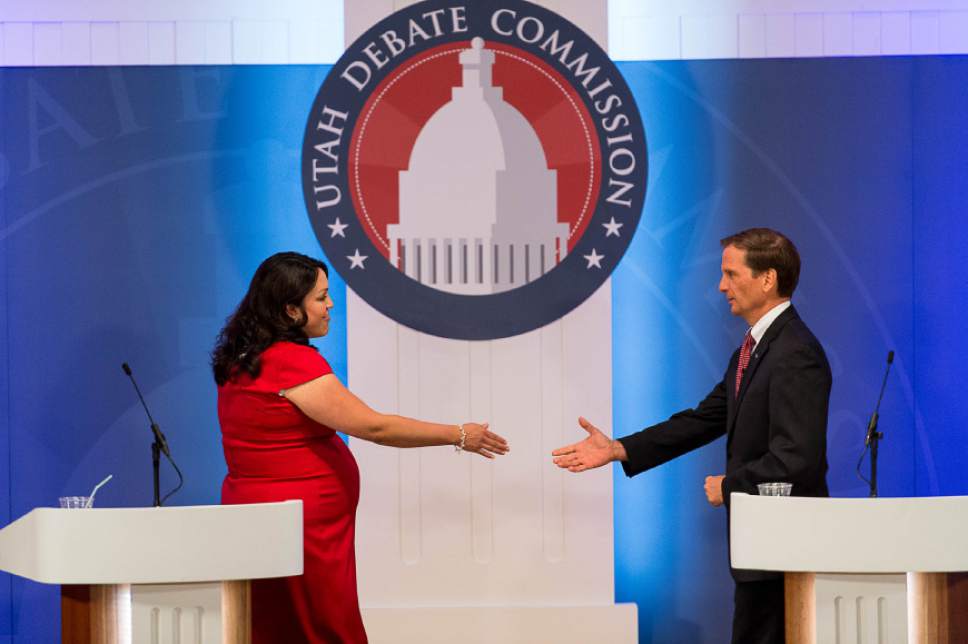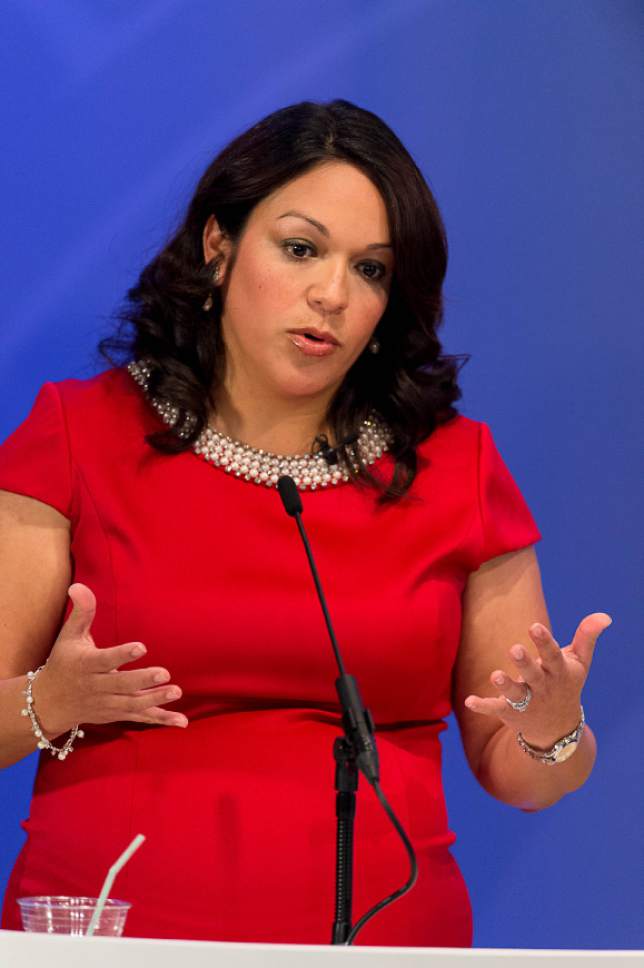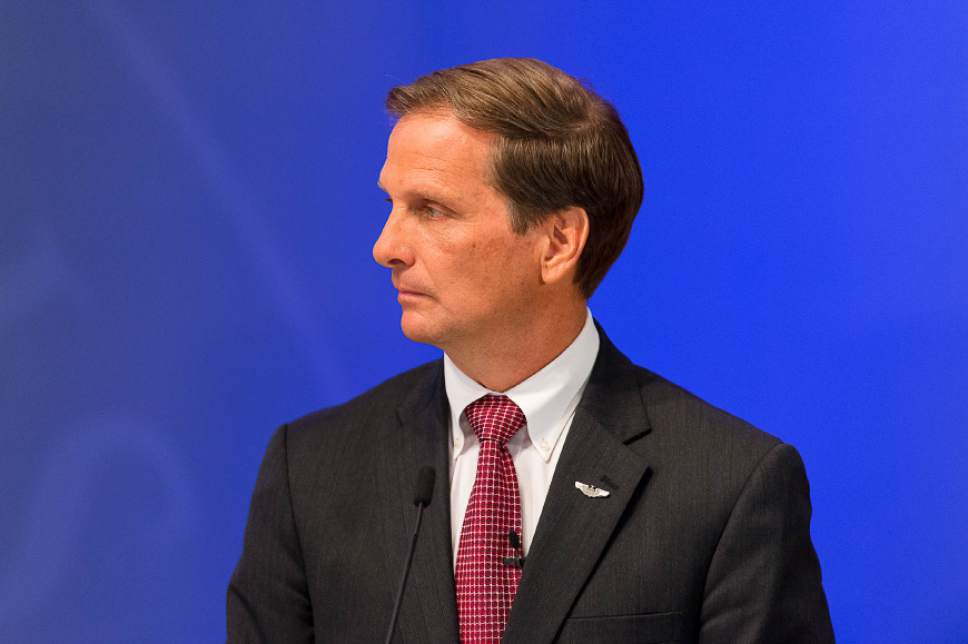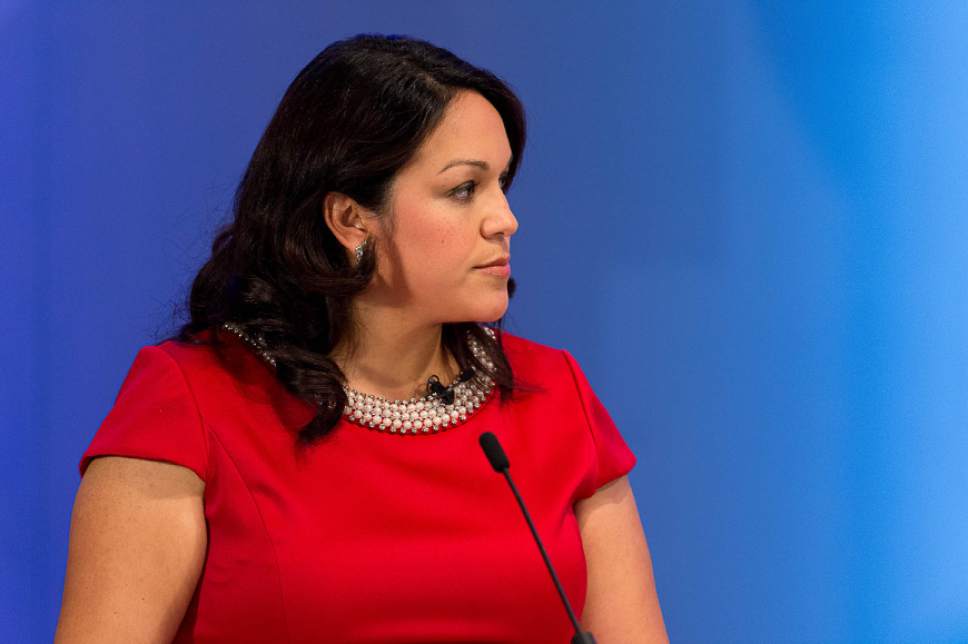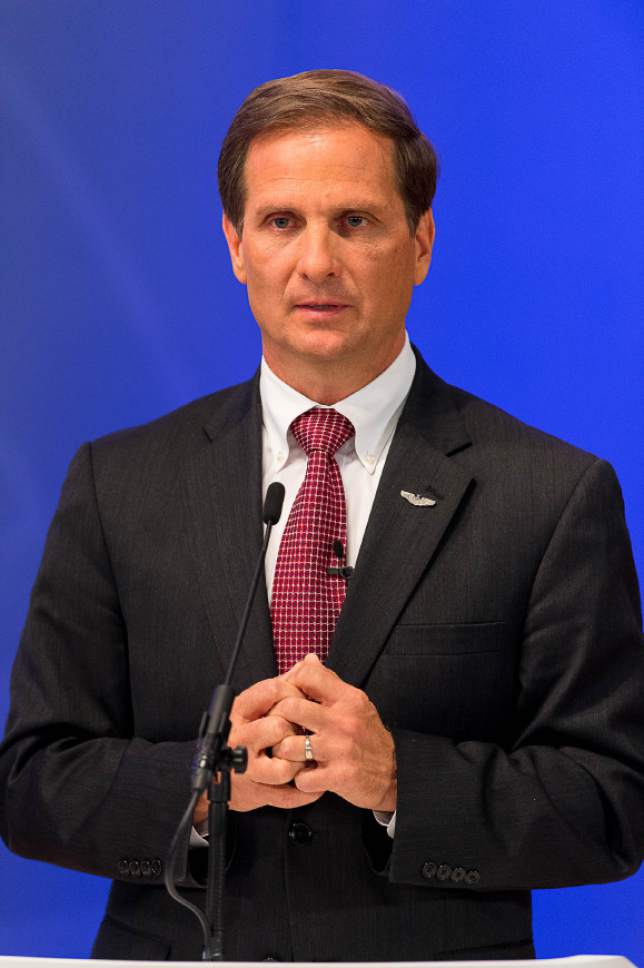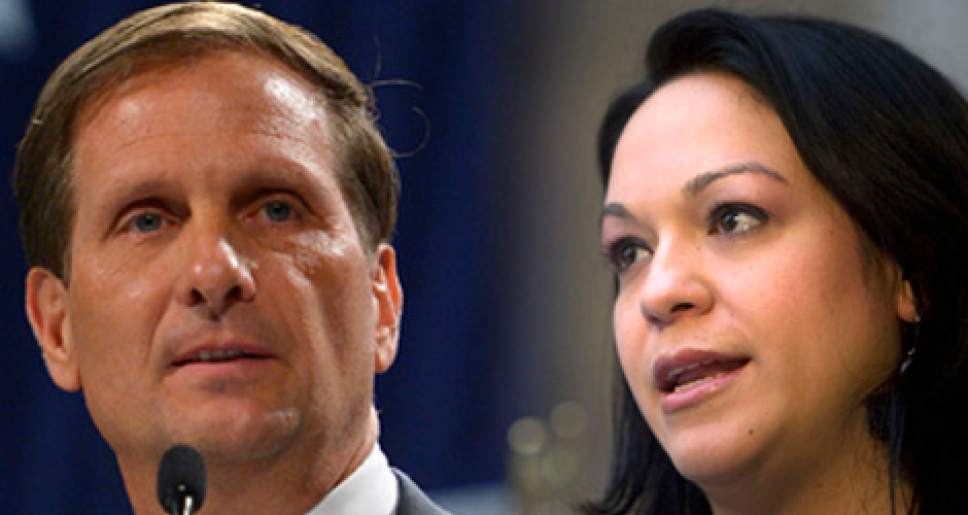This is an archived article that was published on sltrib.com in 2014, and information in the article may be outdated. It is provided only for personal research purposes and may not be reprinted.
Even though Chis Stewart is a U.S. congressman and Luz Robles is a state senator, both find that many people still know little about them — and incorrectly stereotype them going into the Nov. 4 election for the 2nd Congressional District.
"People want to box us into the extreme left or the extreme right," Robles said, adding that she is not the liberal supposed by many but a moderate.
Stewart says he is accused of being a right-wing extremist "primarily from people who don't agree with me" or people "who just don't know me." He says he is a mainstream conservative who seeks practical solutions to problems.
Public confusion about who these candidates are and where they stand on issues stems from several factors.
Both are still relatively new on the big political stage. Robles is having trouble raising money to spread her message and had to take two months off from campaigning because of family illnesses. And Stewart says he is a workhorse instead of a show horse, who doesn't seek the spotlight.
—
Robles • She has been a state senator for six years and is a vice president of Zions Bank. She was born in Mexico and moved around much of that country with her banker father but attended high school and college in the United States. She became a naturalized U.S. citizen.
As a Democrat in an overwhelmingly Republican Legislature and living in a conservative state, Robles says, "I work in an environment where you have to be more in the middle than anything. I consider myself pretty moderate."
Her work in her Salt Lake City legislative district has not attracted much attention from voters spread over a congressional district that stretches to St. George; many assume she and most Democrats are liberals. The district includes most of Salt Lake City but sweeps up areas of Davis County and rural Utah that tilt decidedly Republican.
Robles has struggled to raise money to get out her message because many political-action committees don't see the race as close and prefer to spend their money where it may make more of a difference.
"They say, 'Sweetie, do you know what the numbers are like?' Unless you are within a 10 percent gap [in polls], they won't even look at your race," Robles said.
A poll by the Utah Debate Commission showed Stewart leading the race by a 48-19 percentage-point margin, but with large numbers of undecided voters. The last disclosure forms show she raised $133,395 to Stewart's $536,000. (Another round of disclosures is due Wednesday .)
"The lack of resources makes it very difficult to put a message out there. It's very expensive," Robles said.
Also, she essentially had to take two months off of campaigning (and fundraising) this summer after her 9-year-old daughter was seriously injured in a car accident; Robles' mother was also hospitalized.
"I was the caregiver for both," she said.
Robles is also pregnant,with a baby girl due in late November. "With my luck, she will come on Election Day. If I'm in labor, it will be an interesting call to Congressman Stewart" after a winner is revealed.
—
Stewart • He is a freshman in Congress, a former Air Force pilot of B-1 bombers, a former small-business owner and a New York Times bestselling author of 17 books, including one about kidnapping victim Elizabeth Smart, and several about America and freedom.
He said one reason many people may not know more about him is that he is a freshman, "and I didn't have a high-profile race last time. Jim [Matheson] and Mia [Love] spent $12 million two years ago." Love and Doug Owens are spending big again this year — so most attention has been on them.
Stewart says his style also isn't one that draws as much attention as others in the congressional delegation.
"There is an old adage that there's a workhorse and a show horse. I knew going into this that I wanted to be someone who is hard working and didn't care if I was working in front of the cameras or behind," he said. "I recognize that at the end of the day, it's more important what you do than what you say."
He said his work is attracting bigger political donations this year.
"I was selected to be the chairman of a subcommittee as a freshman. That's very rare. I moved to the Appropriations Committee, one of the most powerful in Congress, also as a freshman, also very rare. That kind of history certainly helps with raising money," he said.
Still, he says he does not plan any TV ads. "It's just so much money and probably not necessary for us at this point." He instead will use radio, billboards and social media — again creating a lower profile than many other candidates.
—
Issues/immigration • In two debates they held, they have also tried to show they are not the extremists that some think.
Immigration is a key area where the two differ. Robles wants Congress to combine reforms in one bill and allow a pathway to citizenship for millions of undocumented immigrants already here. Stewart wants no special pathway to citizenship and wants incremental reform beginning with securing the border.
Robles as a naturalized citizen said, "You almost breathe differently when you become a citizen. You are fully integrated," she says.
If citizenship is not allowed for the undocumented — after appropriate fines and waiting periods — "You create a permanent second-class. We will have better residents if we allow them to become citizens."
Stewart prefers giving permanent legal status instead of citizenship as a practical step toward enacting other reforms.
"The reality of the politics is if you are insisting on citizenship, then you are insisting on a position that will never happen. It's just not going to get through the House." He said permanent legal status is a middle ground that might pass and could clear the way for reforms on visas and other issues.
—
Health care • The pair also differ on the Affordable Care Act. Stewart wants to repeal it, while Robles seeks to retain but improve it.
"I don't know how you fix this," Stewart says. "It's one of the most destructive laws we've seen in generations. We were told you can keep your plan. You can't. We were told you can keep your doctor. You can't. We were told it would decrease costs by an average of $2,500 per family of four. That's absolutely not the case. We were told it would decrease the deficit by $400 billion. That's absolutely not the case."
Robles says such things as ending insurance companies' ability to deny coverage because of pre-existing conditions and allowing children age 26 and younger to stay on their parents' insurance should be retained. "We can look at other reforms" beyond that, she said, without throwing out the good parts of ACA.
—
Public lands • On public lands, Stewart says he would like to see more local control over federal lands in Utah — but not necessarily federal ownership. Robles sees the federal government as a trusted partner, and says federal management has helped make Utah a top tourist destination.
"There is this presumption that people in Washington, D.C., care more about Utah than we do," Stewart said in one debate. "We are smart enough to do that. We care enough to do that. Let us manage these lands."
He also worries about such things as President Obama creating a new national monument in the greater Canyonlands area without listening to local residents. Robles questioned such concerns.
"Tourism is our No. 1 money-maker" and much of it comes from national parks and monuments here, she said. "I don't see why a monument couldn't be another effective piece of our revenue and tourism. So I welcome the idea of having more of that and creating more of Utah being the place to come."
—
Gridlock • The two are also often asked how they would solve Washington gridlock.
"In Utah, if you are a Democrat, you better be able to be effective and work with the other side of the aisle if you want to make things happen and be able to compromise," Robles said. She says her work in the Republican-controlled Legislature shows she can do that and is what Washington needs.
Stewart said in a debate, "I have worked in a bipartisan way on very contentious issues" — but said Senate Democrats have been unwilling to work with the GOP-controlled U.S. House, and that is what is causing Washington gridlock.


